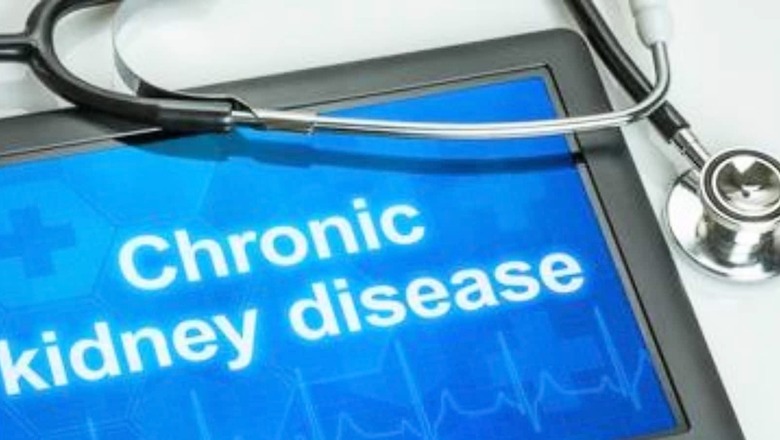
views
An adult human’s kidneys are no larger than the size of a fist. These small organs are responsible for filtering out the waste and toxins from all of the body’s blood as frequently as every half an hour. Although extremely efficient, kidneys are susceptible to multiple ailments. One of these, observed fairly commonly all across the globe, is chronic kidney disease. In this disease, damage happens slowly over a long period. It results in the organs not being able to filter blood as well as they should.
Symptoms
Typically, symptoms of chronic kidney disease will include swollen ankles, feet or hands, fatigue, chest pain, infrequent urination, and blood in the urine. People with kidney ailments can also develop anaemia, bone disease, and malnutrition. However, because the kidneys are exceptionally efficient organs, even if they start accruing damage, these symptoms usually do not show in the early stage. Most noticeable changes only start showing once the damage has become rather extensive. Thus, one will have to proactively try to avoid chronic kidney disease long before there are any signs of an issue.
Prevention
The best way to prevent chronic kidney disease is to maintain healthy cholesterol, blood sugar, and blood pressure levels. This is because high BP can strain the small blood vessels in the kidneys, while high cholesterol can cause a fatty deposit build-up in these vessels. Both can hamper the proper functioning of the kidneys. High glucose in the blood, on the other hand, can damage the tiny filters in the kidneys.
Lower alcohol consumption: Consuming excessive alcohol can lead to an unhealthy rise in BP and cholesterol levels. One must stick to the prescribed intake limit.
Maintain a healthy diet and exercise routine: A healthy, balanced diet is essential to keeping your BP, cholesterol and blood sugar levels in check.
Be cautious with painkillers: Taking too many non-steroidal anti-inflammatories (NSAIDs), or taking them for prolonged periods can hurt kidney health. Common examples of NSAIDs include aspirin and ibuprofen.
Manage underlying conditions: Managing high BP, diabetes, and any other cardiovascular conditions is essential to maintaining well-functional kidneys.
Read all the Latest Lifestyle News here
















Comments
0 comment